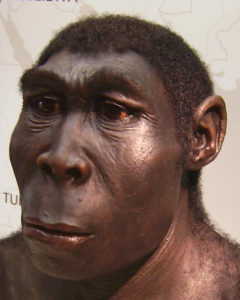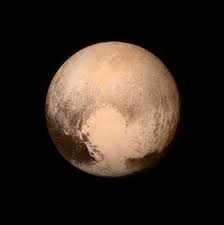As an editor, I’m a stickler for words. Juggling and switching out words for a living, I have my favorites but also my peeves, words that are so innately clumsy, misleading, or cringe-worthy that I just want to get rid of them.

Reconstruction of our ancestor. I don’t know why he has a haircut, either.
This is why I think we should rename our solar system’s most unfortunately named planet Minerva (even starting an ill-fated petition), and think we should be careful about naming that yet-undiscovered planet that might be responsible for shenanigans out in the boondocks. I’ve also ranted about renaming the Stone Age and (more often that I care to link) recasting how we discuss literary genre.
Well, I’ve found another cause. In the wake of recent archaeological finds, the term “Denisovan” has joined “Neanderthal” as a common term of reference for an extinct form of human being. We could, perhaps, use “Heidelberger” for Homo heidelbergensis. Other human species suggest ready common terms: Rudolfian, Habilis, Floresian, Ergaster, Antecessor.
But Homo erectus? At least in English, this scientific name suffers the same cringe-worthiness as “Uranus.” Urine-us? Your anus? And, the species name is misleading. Our ancestors had been standing upright long before these folks came along. Continue reading

 On the Two Johns science fiction podcast #12, a Science Facts episode,
On the Two Johns science fiction podcast #12, a Science Facts episode,  I have written before about how sentimental and unscientific—and embarrassingly ungrammatical—the current International Astronomical Union (IAU) definition of planet is. See “
I have written before about how sentimental and unscientific—and embarrassingly ungrammatical—the current International Astronomical Union (IAU) definition of planet is. See “